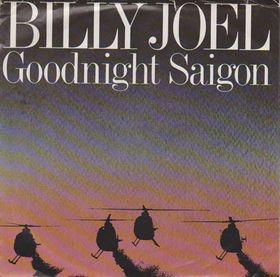About 40 years ago in the early 1970s I visited Portuguese Guine, a Portuguese African colony. Today it is an independent country called Guinea Bissau. At that time I was immersed in studying revolutions in general, and mainly the wars for independence in sub-Saharan Africa. I published an article about the conflict entitled “The War of the Maps: PAIGC vs. Portugal.” The title is admittedly a bit strange at first but easily explained. The PAIGC (Partido Africano da Independência da Guiné e Cabo Verde) was the liberation movement in the colony, run by Amilcar Cabral. He claimed that his movement controlled three-fourths of the country, whereas the Portuguese government claimed it was in control of most of the country. How could such conflicting claims be reconciled?

My study, based on a visit to the war zone, exposed the following: during the day the Portuguese were in control of much of the country but at night their secure positions proved only to be a few major population centers and some military outposts. At night the independence fighters controlled most of the countryside that lay outside of the perimeters of the urban centers and military outposts. Hence, the claims for which side in the conflict controlled what portion of the territory was well over 100 percent. Both sides were correct in their estimates of control, but they did not say anything about the parts of they day their estimates were valid.
This morning during a Starbuck’s coffee I listened to some of my favorite songs. Song #3 was Billy Joel’s “Goodnight Saigon,” about the war in Vietnam.

The following phrase caught my attention for the first time:
“We held the day in the palm of our hands
They ruled the nights, and the nights
Seemed to last as long as six weeks…
On Parris Island.”
I got to thinking that is the way it goes in protracted conflicts. But then, who can really claim to control the country: Both sides or neither combatant, because of a stalemate?
I now believe that the force that controls territory during the nighttime rules the country. And to me that suggests that the Allied Forces-backed Karzai government — engaged in a non-conventional military conflict in Afghanistan against hostile Afghans forces including but not limited to the Taliban — are not in control of the country. Those forces in Afghanistan that have secure control over the countryside from dusk to dawn are in control.
 I cannot see any way that situation will shift. It did not shift during the Soviet failed attempt to dominate the country. In fact, the Afghan people have defied attempts at control from outsider forces for two millennia. That is likely not to change anytime soon. Which leads to the logical conclusion: Bring home the allied forces and say, “we won.” Otherwise, it is a conflict without end.
I cannot see any way that situation will shift. It did not shift during the Soviet failed attempt to dominate the country. In fact, the Afghan people have defied attempts at control from outsider forces for two millennia. That is likely not to change anytime soon. Which leads to the logical conclusion: Bring home the allied forces and say, “we won.” Otherwise, it is a conflict without end.
I wrote this editorial almost 10 years ago about our war in Afghanistan, a 10 year old conflict at that time. This month President Biden is completing a process started by President Trump as he was leaving office in January 2021 to end an “endless war.” I re-discovered this 1 page editorial a few days ago and it reminded me of my early career studying wars of liberation in Africa in general and more specifically in Angola and Portuguese Guiné. The force that rules in the night in Afghanistan — as in the Portuguese and likely other colonies — seems to have the tenacity and will to continue by wearing down the forces that only rule in the daylight. Not sure it is generally true, but sure does see to have been the case today. There is an African saying “when the elephants fight, only the grass suffers.” Paraphrasing that adage, “when governments or ideologies fight, the combatants and civil societies suffer.” Wars suck. Mickey